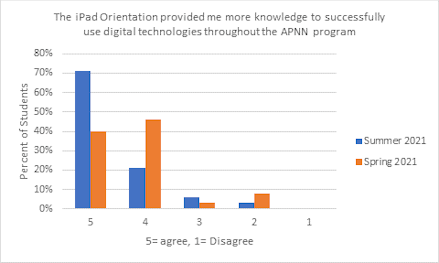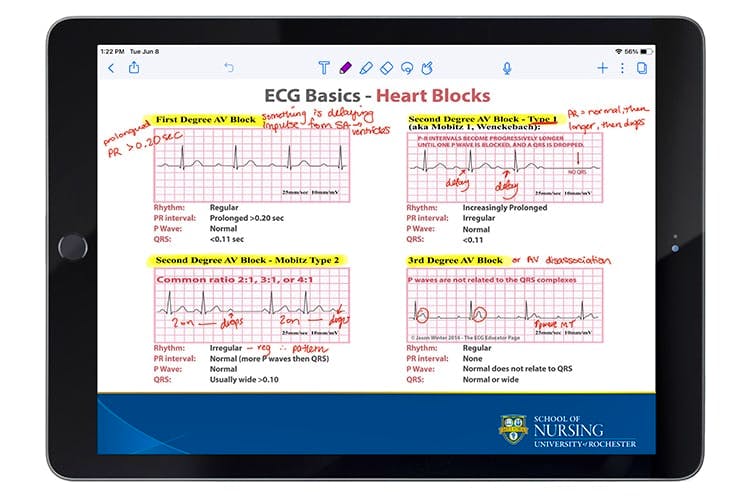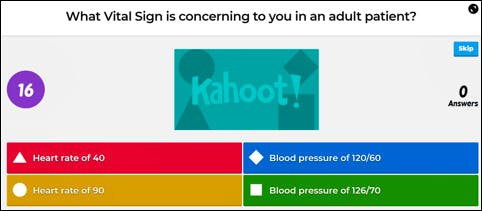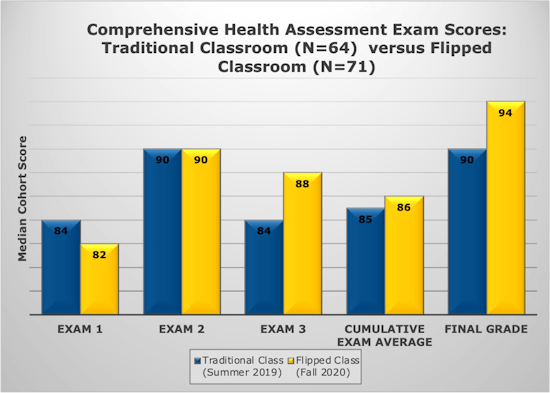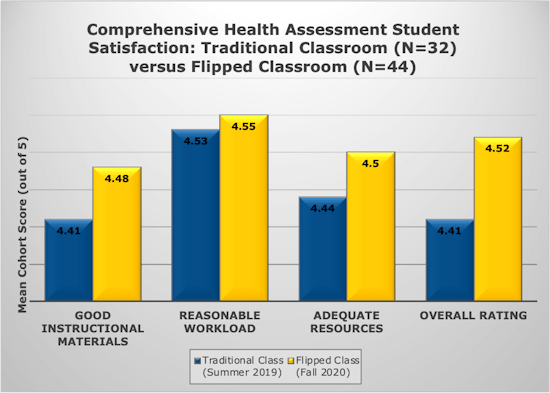The iROC Initiative was launched in the Accelerated Program for Non-Nurses in 2019. Students receive an iPad on the first day of orientation and utilize it throughout their classroom, lab, and clinical experiences over the 12 month program.
Getting started with iROC: orientation
One week before classes begin, students receive a swag bag complete with an optimized 128GB iPad, Logitech keyboard case and crayon, and stethoscope. Students attend an iPad training session to get comfortable with navigating and using the apps and books that come pre-loaded on the iPad. In addition to the structured sessions, students are welcome to attend open troubleshooting sessions for additional support.
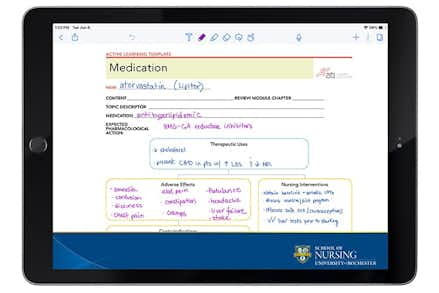
At the conclusion of orientation, a survey is disseminated to elicit specific feedback about the students’ orientation experience. The survey is disseminated via an email distribution list within the survey platform. Questions specific to the iPad orientation capture students’ perceptions around the iPad setup process and comfort level using the digital technologies after iPad orientation. The survey was disseminated to the students who participated in the virtual orientation sessions in the Spring 2021 and Summer 2021 semesters. The response rate for the Spring 2021 cohort was 56 percent, and the response rate for the Summer 2021 cohort was 70 percent. Data from both surveys revealed that the iPad setup instructions were easy to navigate, and students felt very comfortable using the apps reviewed during orientation session(s).
From Spring 2021 to Summer 2021, students reported a significant increase in confidence using the iPad and digital technologies after completing the iPad orientation.
